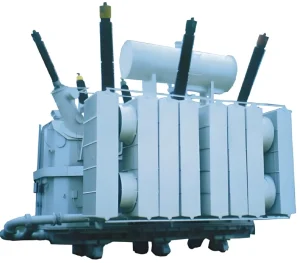
Introduction
Brief Overview of Shell Transformer
Shell transformer is a type of transformer where the core encases the windings. This unique construction provides better mechanical protection and reduces electromagnetic interference, setting them apart from core-type transformers.
Importance in Electrical Systems
Shell transformers are crucial in electrical systems due to their efficiency and reliability. They are widely used in various applications, ensuring stable voltage transformation and protection against electrical faults.
Benefits
Improved Mechanical Strength
Shell transformer offers enhanced mechanical strength due to their design. The core’s encapsulation of the windings protects them from physical damage and external vibrations, which extends the transformer’s lifespan.
Enhanced Short-Circuit Performance
The design of shell transformers provides superior short-circuit performance. This makes them ideal for applications that require high fault tolerance, ensuring uninterrupted operation even in adverse conditions.
Better Electromagnetic Shielding
The construction of shell transformer offers better electromagnetic shielding. This reduces the impact of external electromagnetic fields on their operation, leading to improved efficiency and operational stability.
Reduced Leakage Reactance
The compact and enclosed design of shell transformers minimizes leakage reactance, resulting in lower energy losses and higher efficiency. This advantage proves particularly beneficial in power distribution networks.
Applications of Shell Transformer
Industrial Applications
In industrial settings, shell transformers are used to power heavy machinery and equipment. Their durability and efficiency make them ideal for providing stable voltage and reducing the risk of operational downtime.
Commercial Applications
Furthermore, commercial buildings utilize shell transformers to ensure a reliable power supply. Their capability to handle fluctuating loads makes them suitable for office complexes, shopping malls, and other commercial infrastructures.
Renewable Energy Systems
In renewable energy systems, such as wind and solar power installations, shell transformers are essential. Their efficient performance and resilience to environmental conditions make them suitable for converting and distributing renewable energy.
Railway and Transportation
The transportation sector benefits from shell transformer in railway electrification and other systems. Their robust design ensures continuous power supply, which is critical for the smooth operation of transport networks.
Key Features
Core and Coil Construction
Shell transformers feature a multi-laminated core that surrounds the windings. This construction provides better mechanical support and reduces core losses, contributing to overall efficiency.
Cooling Mechanisms
Advanced cooling mechanisms, such as oil or air cooling, are often incorporated in shell transformers. These systems enhance thermal management, preventing overheating and ensuring optimal performance.
Insulation Systems
High-quality insulation materials are used in shell transformer to ensure electrical integrity and safety. The insulation protects against electrical faults and extends the operational life of the transformer.
Customization Options
Manufacturers offer various customization options for shell transformers to meet specific requirements. These customizations can include different voltage ratings, cooling methods, and protective features, tailored to diverse applications.
Conclusion
Recap of Benefits, Applications, and Key Features
Shell transformers offer numerous benefits, such as improved mechanical strength, enhanced short-circuit performance, better electromagnetic shielding, and reduced leakage reactance. They are used in industrial, commercial, renewable energy, and transportation applications.
Final Thoughts on the Importance of Shell Transformers in Modern Electrical Systems
In conclusion, shell transformer is indispensable in modern electrical systems. Their unique design and robust features ensure reliable and efficient power distribution, making them a critical component in various industries.